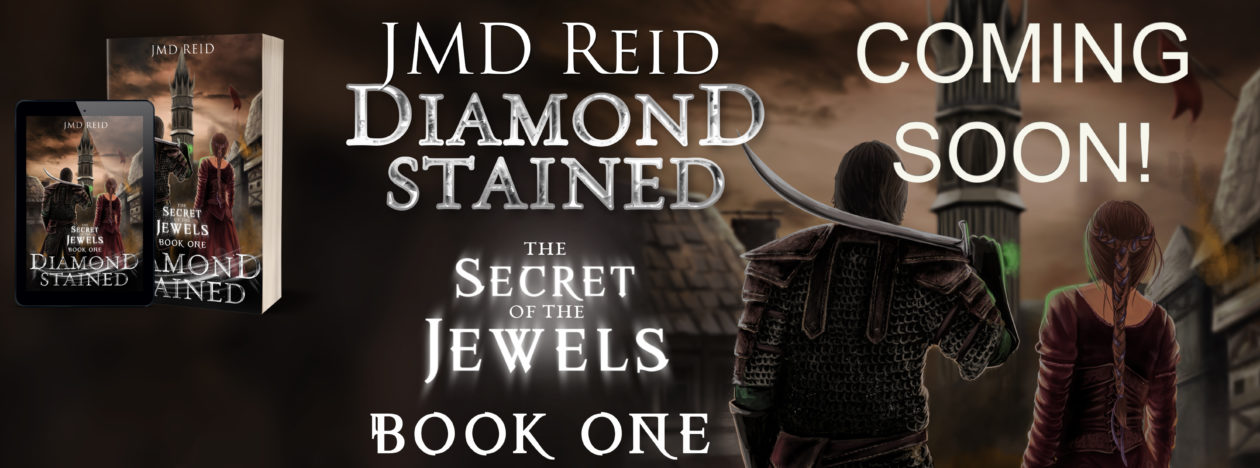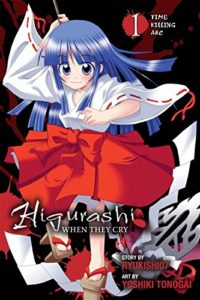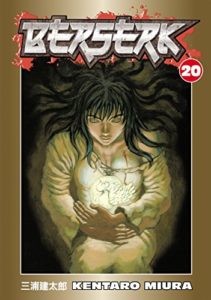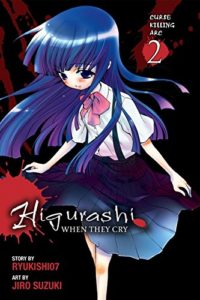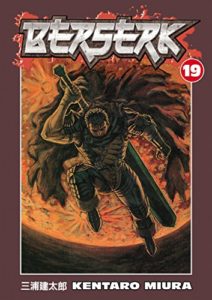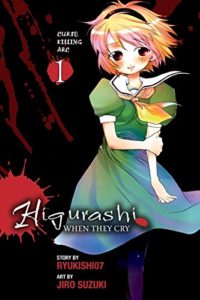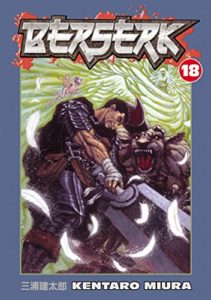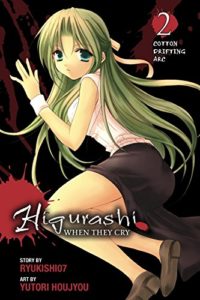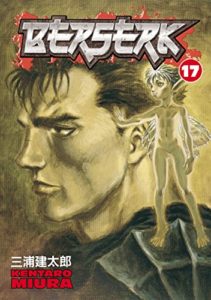Reread of Prince of Nothing Trilogy
Book 3: The Thousandfold Thought
by R. Scott Bakker
The Final March
Chapter 12
Holy Amateu
Welcome to Chapter Twelve of my reread. Click here if you missed the Chapter Eleven!
Death, in the strict sense, cannot be defined, for whatever predicate we, the living, attribute to it necessarily belongs to Life. This means that Death, as a category, behaves in a manner indistinguishable from the Infinite, and from God
—AJENCIS, THE THIRD ANALYTIC OF MEN
One cannot assume the truth of what one declares without presuming the falsity of all incongruous declarations. Since all men assume the truth of their declarations, this presumptions becomes at best ironic and at worst outrageous. Given the infinity of possible claims, who could be so vain as to think their dismal claims true? The tragedy, of course, is that we cannot make declarations. So it seems we must speak as Gods to converse as Men.
—HATATIAN, EXHORTATIONS
My Thoughts
Interesting quotes. They are both about the limitation of knowledge. We, as living human beings, cannot see beyond our material world. We cannot understand what lies beyond the boundary of our universe because we can never observe it. We cannot understand what happened before the big bang because it precedes all cause. We cannot study parallel realities because we cannot leave our own. We cannot understand what happens after death because we are still alive.
The second quote narrows the limitations of knowledge further. You cannot know all the knowledge that every other human possesses, only your own. Which means any truth you declare may be voided by the knowledge another person has. Because of this (even the author of this passage is guilty of it by stating this to be a truth), we can never speak with one hundred percent authority on a subject.
Despite that, we fake it.
We pretend to converse as Gods with all the conviction of omniscience. Remember that next time you hear some speak with absolute conviction. Maybe they’re right, or maybe they’re idiots. Interesting quotes to proceed Kellhus’s first meeting with the Consult proper.
Both quotes are more profound since Achamian will be dealing with the death of Xinemus and his latent guilt for Inrau while Esmenet is confronted with the death of her relationship. That she doesn’t love Kellhus but worships him as a good. She can’t ever know Kellhus like she could know Achamian.
Early Spring 4112 Year-of-the-Tusk, Amoteu
Incû-Holoinas, the Nonmen had called it. The Ark-of-the-Skies.
After his victory over the Inchoroi, Nil’giccas had ordered a census of the vessel, the results of which were recorded in the Isûphiryas, the great annals of the Nonmen. Three thousand cubits in length, over two thousand of which were buried with the prow in the mangled depths. Five hundred in width. Three hundred in depth…
It was a many-chambered mountain, wrought in a gold-gleaming metal that could not be scored, let alone broken. A city rolled into the warped planes of some misbegotten fish. A ruin that the world could not stomach, that the ages could not digest.
And, as Seswatha and Nau-Cayûti discovered, a great, gilded crypt.
Seswatha and Nau-Cayûti wander the horrific Ark, finding crumbling bones of humans, Nonmen, Sranc, Bashrag, and others. Seswatha is having trouble comprehending the horror of the place. Intellectually, he knows he’s in the place where the “Inchoroi, in their wickedness, had gnawed at boundaries between the world and the Outside for thousands of years” but it still has him reeling. He can feel damnation nearby. The place had become a topoi, where “hard lines of reality had become shading.” He can hear inhuman moans and groans. They catch glimpses of thing that Achamian notices disturbs Nau-Cayûti. He keeps whirling to spot them but failing.
This is Achamian dreaming as Seswatha, relieving the past as he and Nau-Cayûti wander the “mouldering passage, wondering where his hope had at last guttered out.” Achamian ponders how they can escape even if they find their goal.
He could feel them, piling labyrinthine into the distances above and below him, the consuming hollows. IT seemed hell itself roared inaudible about them.
This place.
Nau-Cayûti thinks that they are passing bones. He’s hugging himself as “though shielding nakedness from blowing ice.” Achamian, as Seswatha, says that some believe the Ark was made of flesh and bone, that it birthed the Inchoroi. They call themselves “Children of the Ark” and Nonmen “Orphans.” Nau-Cayûti realizes that this place is a “dead womb.”
Nau-Cayûti peered through the surrounding gloom. “Obscenity,” he muttered. “Obscenity. Why, Seswatha? Why would they bring war against us?”
“To close the world,” seemed all he [Achamian] could muster.
To seal it shut.
Nau-Cayûti gets agitated, fearing for the life of his lover. Achamian lies that she’s still alive. They press on with Achamian (Seswatha) fearing they’re doomed. He follows after “the greatest light of the dynasty that called itself Anasûrimbor.”
The greatest light of men.
Kellhus thinks that he has crossed the world to reach his Father, following the Shortest Path. He plots out his next move, picturing the world beyond the manor house and it’s gardens. He imagines traveling over the Shairizor Plains. He is preparing to face his father when he something intrudes on trance.
Without warning, the drafts became humid with the scent of jasmine and feminine lust. He heard bare feet—her bare feet—pad over marble. The bruise of sorcery was plain, almost rank, but he didn’t turn to acknowledge her. He remained perfectly still, even when her shadow fell across his back.
“Tell me,” she said in ancient Kûniüric, both fluid and precise, “what are the Dûnyain?”
Kellhus bent his thought backward, yoked the legion that was his soul. Likelihood chased likelihood, some to fruition, others to extinction. Esmenet, entwined in boiling light. Esmenet bleeding, broken at his feet. Words, winding and forking, calling out apocalypse and salvation. Of all his encounters since leaving Ishuäl, none demanded more… exactitude.
The Consult had come.
Kellhus replies the Dûnyain are just men. Aurang, possessing Esmenet, doesn’t believe that. He watches as Aurang inserts fingers into Esmenet to draw out the seed Kellhus spilled in her earlier, tasting it, calling it bitter. Kellhus thinks it’s a provocation.
He [Kellhus] turned to her, drew her into the cauldron of his attention. Fluttering pulse. Shallow breath. Beads of sweat breaking into threads. He could smell he skin tingle in the night air, the residue of salt. He could even see the swelling of her breasts, the heat of her womb. But her thoughts… It was as though the string between her face and soul had been severed and resfastned to something both sleek and alien.
Something not human.
Kellhus, acting like a father, admonishes Aurang that he’s beyond the Consult’s power. Aurang asks how can Kellhus know that when he’s ignorant of Aurang. Kellhus notes pride as Aurang laughs, mocking whatever silver of knowledge Achamian possessed about the Inchoroi. Aurang says, “I’ve looked across the void and blotted your world by holding a fingertip.” As he speaks, Kellhus notes the lust that reminds him of a Sranc’s “rutting frenzy for blood” and skin-spies growing erect at violence.
So similar.
They were the template of their creations, he realized. They had implanted their own carnal longing, made their own appetite the instrument of their domination.
“So what are you, then?” Kellhus asked. “What are the Inchoroi?”
“We,” she cooed, “are a race of lovers.”
Kellhus expected this answer from Achamian’s descriptions. Kellhus feigns sorrow and asks if this is why the Inchoroi were damned. Aurang answers they were “born for damnation’s sake,” saying that they’re very nature is their sin. For enjoying sex, Aurang has to “heave and scream in lakes of fire?” Kellhus might not know how great Aurang’s intelligence is, but he understands that Aurang “counted grievances.” Just like all souls did, he put himself at the center of everything. Kellhus says that is the nature of the world.
Aurang mocks that Kellhus, as a prophet, can rewrite damnation. Kellhus says he can’t, it’s impossible. Aurang says there is a way.
“So you would destroy the world?” [asked Kellhus.]
She shuddered, her body afire with arousal. She lowered her buttocks, crossed her legs about her fingers. “To save my soul, hmmm? So long as there are Men, there are crimes. So long as there are crimes, I am damned. Tell, Dûnyain, what track would you follow? What would you do to save your soul?”
Kellhus picks up the word track, knowing Cnaiür has been tutoring Aurang. Kellhus regrets not killing Cnaiür. Aurang continues, talking about how sex is everything, the rest is a murmur farce to achieve it. “It all comes to love in the end.” Aurang saunters to Kellhus, talking how despite “love is the way,” the demons they call Gods to declare it a sin. Aurang wants to save its soul.
She reached out to trace his lips with a shinning fingertip. Esmenet, burning for congress. For all his breeding, all his conditioning, Kellhus could feel the ancient instinct rise… What kind of game?
He caught her wrist.
“She doesn’t love you,” she said, tugging her wrist free. “Not truly.”
The words jarred—but why? What was this darkness?
Pain?
“She worships,” Kellhus found himself replying, “and has yet to understand the difference.”
Kellhus wonders how keen was its intelligence while Aurang praises Kellhus for stealing the holy war. Kellhus realizes he’s being baited into boasting about how he claimed the Holy War. Kellhus says he needs the Holy War to defeat his father, given Moënghus’s thirty-year head start. Aurang doesn’t believe Kellhus, saying he’s his father’s heir instead. At the same time, sorcery fouling the air, it grabs Kellhus’s manhood. This confuses him. He wants to screw the possessed Esmenet and realizes he’s hiking up his own robe, letting Aurang touch him directly.
“Tell meeee,” she moaned again and again, and though Kellhus knew to be her words, he found himself hearing, Take me…
He lifted her with ease, spread her across the settee. He would pin her to the deep! He would plunge and hammer until she howled for release!
“Who is your father? a voice whispered.
Aurang’s drawing him to Esmenet’s sex while asking what Moënghus’s plans are. Kellhus is unable to keep quiet and gasps, “To make manifest the Thousandfold Thought…” At that moment, he sees through the spell at the soul “old and hoary and rotted” lurking in Esmenet’s eyes.
Sorcery!
The Ward was simple—one of the first Achamian had taught him—an ancient Kûniüric Dara, proof against what were called incipient sorceries. His words racked the sultry air. For a moment the light of his eyes shone across her skin.
The darkness faltered and the shadow fell from his soul. He staggered back two steps, his phallus wet and chill and hard. She laughed as he covered himself, her voice guttural with inhuman intonations.
Bait it.
“Across the world in Golgotterath,” Kellhus gasped, still stamping out the coals of his manic lust, “The Mangaecca squat about your true flesh, rocking to the mutter of endless Cants. The Synthese is but a node. You are no more than the reflection of a shadow, an image cast upon the water of Esmenet. You possess subtlety, yes, but you haven’t the depth to confront me.”
Kellhus reflects on Achamian’s lessons, that Aurang would have its abilities restricted to glamorous and compulsions. “The great shout that was its true form, the Schoolman had said, could be heard only as whispers and insinuation at such a distance.” Angry, Aurang taunts Kellhus to kill it (and by proxy, Esmenet). Kellhus finds himself growing aroused as he retreats. He feels the past as a weight, drawing him into “the current of passing events.” Kellhus realizes that it is boredom and repetition that “rendered the aged immune to the press of events.”
Aurang keeps taunting, saying Kellhus can’t kill “this pretty shell.” He can’t kill what he loves. Kellhus draws his sword and, Aurang asks what man would kill his wife. “A Dûnyain,” answers Kellhus.
She stopped above the blade, close enough to pinch the tip between the toes of her right foot. She glared with ancient fury. “I am Aurang. Tranny! A son of the void you call Heaven… I am Inchoroi, a raper of thousands! I am he who would tear this world down. Strike, Anasûrimbor!”
Kellhus reached…
…and saw himself through the obscenity’s eyes, the enigma who would draw out his father, Moënghus. Kellhus reached, though with fingers lacking tips, palms without heat. He reached and he grasped…
Kellhus seizes Aurang’s soul, feeling its ancient memories of past atrocities. He learns the Inchoroi are a race with “a hundred names for the vagaries of ejaculation, who had silenced all compassion, all pity, to better savour the reckless chorus of their lust.” They have gone from world to world, plundering. It was a life so whole that only Kellhus and the Dûnyain were new and unprecedented. It wonders who the Dûnyain are and how they came from the shadow of Golgotterath. How could Kellhus enslave a holy war? The Consult especially hates that he’s an Anasûrimbor, their old enemy thought destroyed.
And Kellhus realized there was only one question here: Who were the Dûnyain?
They fear us, Father.
“Strike!” Esmenet cried, her arms back, her shining breasts pressed forward.
And he did strike, though with the flat of his palm. Esmenet sailed backward, rolled nude across the tiles.
Kellhus says the No-God speaks in his dreams, that the Consult failed him at Mengedda. Aurang calls it lies as Kellhus says the No-God comes for the world. Aurang begs Kellhus to strike or fuck her. This time, the “lustful glamour fell from him.” Kellhus declares Aurang defeated.
And for the first time she replied according to his anticipations.
“Ahhhh… but there are as many battlefields as there are moments, Dûnyain.”
Pause. The cycling of possibilities.
“You’re a distraction…” Kellhus said.
Kellhus realizes they are going after Achamian, willing to do anything to deny him the Gnosis. Aurang taunts that it is too late, Achamian is dead.
A skin-spy, appearing as Fanashila, steps out of a false panel in the wall, crammed in a space that had contorted her body. She kills Opsara, which arouses the skin-spy. Then she becomes Esmenet as she approaches Achamian’s quarters, tying a Chorae she carried about her neck. It enters Achamian’s room, hoping he was asleep.
He’s not. His wards had alerted him. It pretends to cry as it stands in the doorway. Achamian studies her, smelling terrified, asking if that’s Esmi. She lets her clothing drop away, revealing her naked breasts. He asks what she’s doing, saying Chorae are now forbidden. She claims Kellhus ordered her to wear it. He asks her to remove it. She does, dropping it, then steps into the moonlight, moaning that she loves him.
“No… this is wrong! He’ll know, Esmi! He’ll know!”
“He already knows,’ it said, crawling onto the foot of his bed.
She could smell his hammering heart, the promise of hot blood. There was such fear in him!
She keeps begging even as she crawls over him. Then her fist plunges down, crushing Achamian’s throat only for the illusion to fall away and reveal Captain Heörsa “thrashing in his very own death throes…”
The Dûnyain had outwitted them.
Traps within traps, the thing called Esmenet carelessly thought. So beautiful…
In what passed for its dying soul.
Someone calls Achamian as he is still dreaming of moving through the Ark with Nau-Cayûti, who is begging to know where “she” is. Achamian is worried his shouts will bring Golgotterath down on them while Nau-Cayûti calls him a liar.
That voice intrudes, speaking about Zin. Then Achamian comes awake and finds Proyas over him. He saying Zin is asking for him. Achamian, “without any real comprehension,” bolts out of bed. He still feels like he’s in the Ark and not Proyas’s tent. Proyas steadies him and they share a look, standing face to face. “For so long the Marshal of Attrempus had stood at their borderlands, guarding the frontier across which the doubt of one had warred with the certainty of the other.” Achamian realizes the distance between them was an illusion and clasps Proyas’s hand.
“I did not mean to disappoint you,” Proyas murmured.
Achamian swallowed.
Only when things were broken did their meaning become clear.
Kellhus is holding Esmenet as she sobs, crying out that she does love him. Outside, the Hundred Pillars are searching for the Synthese. Kellhus know all they will find is Captain Heörsa’s corpse. It played out just like Kellhus anticipated. They wouldn’t try to kill him. “So long as they knew nothing of the Dûnyain, the Consult were trapped in the pincers of a paradox: the more they needed to kill him, the more they needed to learn him—and to find his father.” So they went for Achamian.
Kellhus did not know if Esmenet would remember what happened. She did. She remembers speaking those words like they were her own, begging for him to believe her that she does love him. He agrees with her.
Quivering lips. Eyes parsed between horror and remorse. Panting breath. “But you said! You said!”
“Only,” he lied, “what needed to be heard, Esmi. Nothing more.”
“You have to believe me!”
“I do, Esmi… I do believe.”
She clutched her cheeks, scratched welts across them. “Always the whore! Why must I always be the whore?”
He looked through her, past her bewildered hurt, down to the beatings and the abuse, to the betrayals, and beyond, out to a world of rank lust, shaped by the hammers of custom, girded with scripture, scaled by ancient legacies of sentiment and belief. Her womb had cursed her, even as it made her what she was. Immortality and bliss—this was the living promise all women bore between their thighs. Strong sons and gasping climax. If what men called truth were ever the hostage of their desires, how could they fail to make slaves of their women? To hide them like hoarded gold. To feast on them like melons. To discard them like rinds.
Was this now why he used her? The promise of sons in her hips?
Dûnyain sons.
He realizes that he can’t undo this hurt. As she begs to be held by him, he understands that this is the beginning of the pain she will bear because of him.
Achamian wonders why he doesn’t feel much when things are happening, but only later upon reflection, does he experience emotions. He reflects on when the Pederisk, the Mandate recruiter, came to his hovel to claim him as a boy. Achamian’s father refused, saying both they boy was a good fisherman and,”more importantly, Achamian was his son.” His father was beaten for his defiance while a selfish coldness, the type only “children and madmen are sometimes capable” grips him.
He [Achamian] had gloated
Before that day, Achamian would never have believed his father could be so easily broken. For children, hard-hearted fathers were elemental, more deity than human. As judges, they seemed to stand beyond all possible judgment. Witnessing the humiliation of his father produced the first truly sorrowful day of his life—as well as a day of triumph. TO see the great breaker broken… How couldn’t this transform the proportions of a young boy’s world?
“Damnation!” his father had screeched. “Hell has come for you, boy! Hell!”
Only afterward, as they trundled up the coast in the Schoolman’s cart, would he cry, overwhelmed by loss and delinquent regret.
Far, far too late.
He’s pulled from this thoughts by Xinemus’s weak, rasping words saying he sees where he’s going. Achamian asks what he sees, humoring him since Xinemus is blind. Xinemus sees nothing. Achamian says he’ll describe Shimeh “through the eyes of a sorcerer”
Sickness wreathes around Xinemus. Achamian kneels and wipes at his friend’s brow. He wants to flee the lung-plague killing his friend, fearing for his own safety. Xinemus coughs for a while, making unmanly sounds. Soon it passes, and Xinemus says the rules have changed between them. Achamian doesn’t understand. Xinemus explains once it was Achamian waiting for Xinemus to return from councils.
Again Achamian couldn’t think of anything to say. It was as though words had come to their end, to the point where only impotence and travesty could follow. Even his thoughts prickled.
“Did you?” the Marshal abruptly asked.
“Did I what?”
“Did you ever win?”
Achamian says no, but then adds, someday he may be Xinemus at Benjuka. Xinemus disagrees because Achamian tries to hard but is caught off by coughing, unable to finish his point. Then he starts ranting how he sees nothing. He gags, cough blood, thrashes. When it passes, he begs Achamian to leave.
“Leave… me…” his friend gasped. “Leave me… be…”
“This is no time for pride, you fool!”
“Nooooo,” the Marshal of Attrempus whispered. “This… is… the… only…”
And then it happened. One moment his complexion was mottled by the pallid exertions only the dying can know, and then, as quickly as cloth soaking water, it went purple-grey. A cooler air settled through the canvas spaces, the quiet of utterly inert things. Lice thronged from Xinemus’s scalp onto his brow, across his waxy face. Achamian brushed at them, twitched them away with the numb fastidiousness of those who deny death by acting otherwise.
Achamian promises to bathe Xinemus with Proyas in the river. He watches his friend, feeling the weight of this moment. The lice crawl onto his skin, finding a new host. He realizes Xinemus is dead and screams out his pain. “And though his cry reached out across the plains, it fell far short of Shimeh.”
Achamian remembers playing Benjuka with Xinemus in better times while Xinemus explains why he always loses. Achamian tries so hard. Achamian picks up the stone piece that doesn’t match the other silvers. It annoys Achamian to play with it.
Why do I get the stone?
Achamian doesn’t sleep. He’s summoned with Proyas to see Kellhus, but he refuses to go. He rebukes Proyas for doing it, using words so harsh guards draw weapons. Achamian flees into the night and wanders “the dark ways of the Holy War.” His thoughts drift through mundane questions, latching onto anything save “that which might drive the wedges of madness deeper.”
Then, as dawn brightened over the promise of Shimeh in the east, he made his way to the fortified villa. He climbed the slopes ad passed unchallenged through the gates, and finally found himself walking the overgrown garden, heedless of the burrs and claws that snarled his robes, of the nettles that inflamed his skin. He waited below the veranda that fronted the main apartments—where his wife moaned about the cock of the man he worshipped.
He waited for the Warrior-Prophet.
Kellhus, saying Achamian looks terrible, snaps Achamian out of his daze. He’s frightened for Esmenet and asks after her. Kellhus says she’s sleeping but suffered greatly. Achamian thinks Kellhus looks like Nau-Cayûti. Achamian’s anger crumbles “as a child’s might before a mother or a father.” He asks Kellhus why he didn’t heal Xinemus. This shocks Kellhus for a heartbeat, he recovers, but “Achamian’s ears roared with such violence that he heard nothing of Kellhus’s reply, save that it was false.” The awe Achamian once felt for Kellhus is gone. He sees only coldness in Kellhus.
How?
And somehow, unaccountably, Achamian knew that he was truly awake—perhaps for the first time. No longer was that hapless child in this man’s gaze.
Achamian pulled away—no horrified, just… blank.
“What are you?”
Kellhus’s gaze did not falter. “You filch from me, Akka… Why?”
“You are not a prophet! What are you?”
Achamian witnesses a change in Kellhus. Expression dies in him. Kellhus says, in a dead voice, “I am Truth.” Achamian struggles to understand, feeling panicked, horrified. Kellhus forces Achamian to stare at the rising sun. Achamian is choking, held up by the throat. He struggles. When he’s released, Achamian begins preparing cants to kill Kellhus and die in the process.
But the voice would not relent.
“Does this mean the sun is empty?”
Achamian paused, turned his face from the grass and scree, squinted at the figure looming above.
“Do you think,” a voice crackled across every possibility of hearing, “the God would be anything other than remote?”
Achamian lowered his forehead to the biting weeds. Everything spinning, slumping.
“Or do I lie, in that, since I am all souls, I choose the one that will turn the most hearts?”
Achamian is crying, feeling like he’s a child before his abusive father, begging not to be hit. He is terrified, thinking he’ll be good. He feels the guilt of getting Inrau and Xinemus killed. He weeps for them while The Warrior-Prophet held Achamian’s hand
“Tomorrow,” he [Kellhus] said, “we march on Shimeh.”
My Thoughts
What a way to start this chapter. To show us where Aurang comes from. With a dream of Seswatha and Nau-Cayûti delving into the Ark, the mighty spaceship that brought the Inchoroi to this world. It’s crash so disrupted them, they lost so much in the impact, that they couldn’t repair it. The Inchoroi, so it seems, who survived weren’t the engineers. They were the soldiers. That was why it took them forever to the No-God running. Needed humans to help them out there beyond the fact that they couldn’t find the right soul to power its operating system.
Cubits. Very biblical measurement there. Not sure what the length is in Bakker’s, but traditionally it was the length of the king’s forearm. So it wasn’t a precise standard of measurement.
There are some great, visceral passages about the Ark and its contents. What have the Inchoroi been doing to make all the bones and detritus? For thousands of years, they’d hoarded and lived in this crashed ship mostly buried in the ground. It’s accumulated not just waste, but literal suffering. What a terrible place to be taken. It makes you wonder what has driven Seswatha and Nau-Cayûti in here.
Why does Achamian, as Seswatha, feel shame during his conversation with Nau-Cayûti, because he’s lying to him. We get that later. He needs to save the world and to do that he has given Nau-Cayûti false hope that he can save his lover.
I think we get some fatherly moments with Seswatha and Nau-Cayûti in this passage since the following series hints pretty clearly that Seswatha may be Nau-Cayûti’s true father. He also sees him as the salvation of mankind when Nau-Cayûti is actually is damnation.
When Aurang arrives, Kellhus immediately contemplates killing Esmenet. It is the shortest path. If he’s focused on only killing his father, his mission as a Dûnyain, he shouldn’t even hesitate. But he instead realizes he has to be very careful here. He wants to protect. He sees beyond killing his father. He has a new mission now. The Circumfix has broken him from being a Dûnyain. He has felt emotions, if weekly. He needs Esmenet as more than just a breeder.
Kellhus has come to love her.
Where there are Men, there are crimes. This takes us back to the very start of the series. The opening with the last survivor of Ishuäl reflecting on it after the bard had raped him, wondering if there can be a crime when the world had ended. Right there is the Inchoroi’s goal. They don’t want to go to damnation and are unwilling to bend to the outside. So they will exterminate the collective unconsciousness that has birthed the outside. It’s very rare that you can find a group bent on annihilating a world and also have a motivation that makes sense.
What would you do to save yourself from eternal damnation if you knew it was your fate?
Right there, with that jar of pain on hearing that Esmenet doesn’t love him, something Kellhus knows, he is feeling that stirring of emotion. Pain and love. It’s faint, but it’s there. Perhaps for the first time, he recognizes it. He felt similar for Serwë once. They are stains of emotions upon Kellhus’s soul. It’s not much, but it’s what allows him to side-step the pure Dûnyain logic. Why he doesn’t side with the Consult like every other Dûnyain would.
Now we see the power of the Inchoroi’s enchantments and how they can get people so horny they cooperate even while being violated. The reek of sorcery gives us a clue how they inspire such lust in a person. As we saw at the end of the Warrior Prophet, it’s impossible for a normal human to resist. Now Kellhus is falling prey to it. Even knowing he’s being manipulated, he’s losing. He’s feeling true lust for the first time.
We’re witnessing the first battle of the Second Apocalypse right here.
Kellhus doesn’t have experience dealing with true lust. He’s feeling it for the first time, and he’s realizing his lack of repetition with it, with dealing with emotions, is a weakness of his. It’s something that will allow the events of the Unholy Consult’s climax to happen.
The No-God was probably speaking to Kellhus during the Circumflex. It’s possible the No-God still is talking to Kellhus. Perhaps the No-God senses Kellhus is a potential component to activate it, though not that he will activate it.
It takes Kellhus some time to decipher Aurang, but by the end, Kellhus is predicting how Aurang will behave. In one encounter, maybe 10 minutes, Kellhus has already understood how Aurang thinks. So don’t be surprised by what is found at Golgotterath at the end of the Unholy Consult.
And now we see the full trap. It’s a devious plan, sending a skin-spy to him as Esmenet. But one that Kellhus was prepared for. No wonder Achamian smelled terrified. Heörsa had to know what was coming.
Love how the skin-spy really doesn’t care that the trap fell. It got to kill somebody and watch them die.
Get a little tease on how Seswatha convinced Nau-Cayûti to go into Golgotterath.
What a poignant scene between Kellhus and Proyas, finally coming together as they both realize what they lost. It’s powerful in its understatement. The naked truth laid bare with that final line of his section.
And there we have Esmenet in denial that she loves Kellhus and it isn’t about worship. He confirms it with his lie to her. He told Aurang the truth, because Aurang knows it, too. He’s studied regular humans for a long time. He understands them. It’s Dûnyain that Aurang doesn’t understand.
Poor Esmenet. Always the whore. She can’t escape her past, try as she might. It’s the darkness that comes before her. I have so much sympathy for Esmenet. She did what she had to survive, she’s trying to escape that past, and it clings to her.
I think this is where Kellhus realizes he loves Esmenet. Through this encounter, as he sees her pain from how he used her. He already felt the guilt of using Serwë, whom I think Kellhus loved ever since he witnessed her rape at the hands of Cnaiür, he just never noticed it. His passions are so weak, it’s only when he hurts them, like a nonman erratic, that he feels anything. When he uses them and sees the consequences is it enough for him to stir those stunted feelings.
It’s often on reflection that we can see things more clearly. That we can understand the import of what happened. When we’re in the middle of events, we don’t understand the significance. We can’t because the future hasn’t happened yet. We don’t know what the consequences are, what it meant. It can change how we felt.
Pederisk. There’s a Greek reference. It’s one that used to mean teaching young boys but got twisted through slander by the Spartans against the Athenians, suggesting it was a sexual relationship, too. Nothing in the text, here, however, suggest that save that Sorcerers and Whores are said to be similar. Like we see Esmenet, and women, are cursed because of their womb, sorcerers are cursed because they can see Creation a little more clearly.
It’s so heartbreaking to watch Xinemus die. He still has some of that pride, not wanting to be seen weak even as he’s utterly broken by the torture. A shell of a man dying of a sickness. Weakened and destroyed by events. Achamian is dealing with those selfish impulses we all have, those ones that hate being imposed upon as he tries to give comfort to his friend in these last moments. And then… it’s over.
Xinemus is gone, his last words talking about how in his final moments, he needed to be proud. To be who he used to be. That was the most important thing to him, to get back to whom he was before the compulsion. Nothing did it. Not vengeance. Not the Warrior-Prophet. Now it’s too late.
Nice call back to that game of Benjuka from Book One.
I think Achamian really surprised Kellhus with his question on why he didn’t heal Xinemus. It wasn’t what he was prepared to deal with, but to give comfort over a death. He recovers almost instantly. Maybe Kellhus is more shook up by this night’s events and realizing he loves Esmenet that he betrayed himself at that moment.
Achamian saw the truth of Kellhus, but Kellhus recovered. He embraced it. He realized he was unmasked, so he used it. He took the shortest way, acting like the remote, all-knowing God to keep Achamian on his side this time. But how much longer can he do that? Where can Kellhus go from here now that he’s abandoned the pretense to Achamian that he’s a soul who loves? Achamian knows it was all a deception.
A powerful chapter all around. One of the best in the series.
Hi, if you like my Analysis, you can connect with me on Facebook and Twitter, and you can pre-order my first fantasy novel, Above the Storm, from Amazon or purchase my short story collection! Also, please leave any comments or criticisms below! They help keep me motivated!
Click her for Chapter Thirteen!
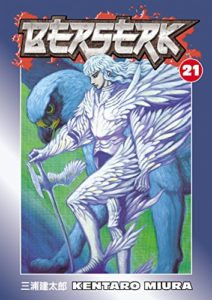 The built up torture and pain around Albion Monastery has combined with the wish of the Behleit Apostle. The negative energy surges through the refugees, consuming all who encounter it. Father Mozgus, transformed into a pseudo-apostle, sees himself as an avenging angel. He believes burning the witch will stop the madness.
The built up torture and pain around Albion Monastery has combined with the wish of the Behleit Apostle. The negative energy surges through the refugees, consuming all who encounter it. Father Mozgus, transformed into a pseudo-apostle, sees himself as an avenging angel. He believes burning the witch will stop the madness.